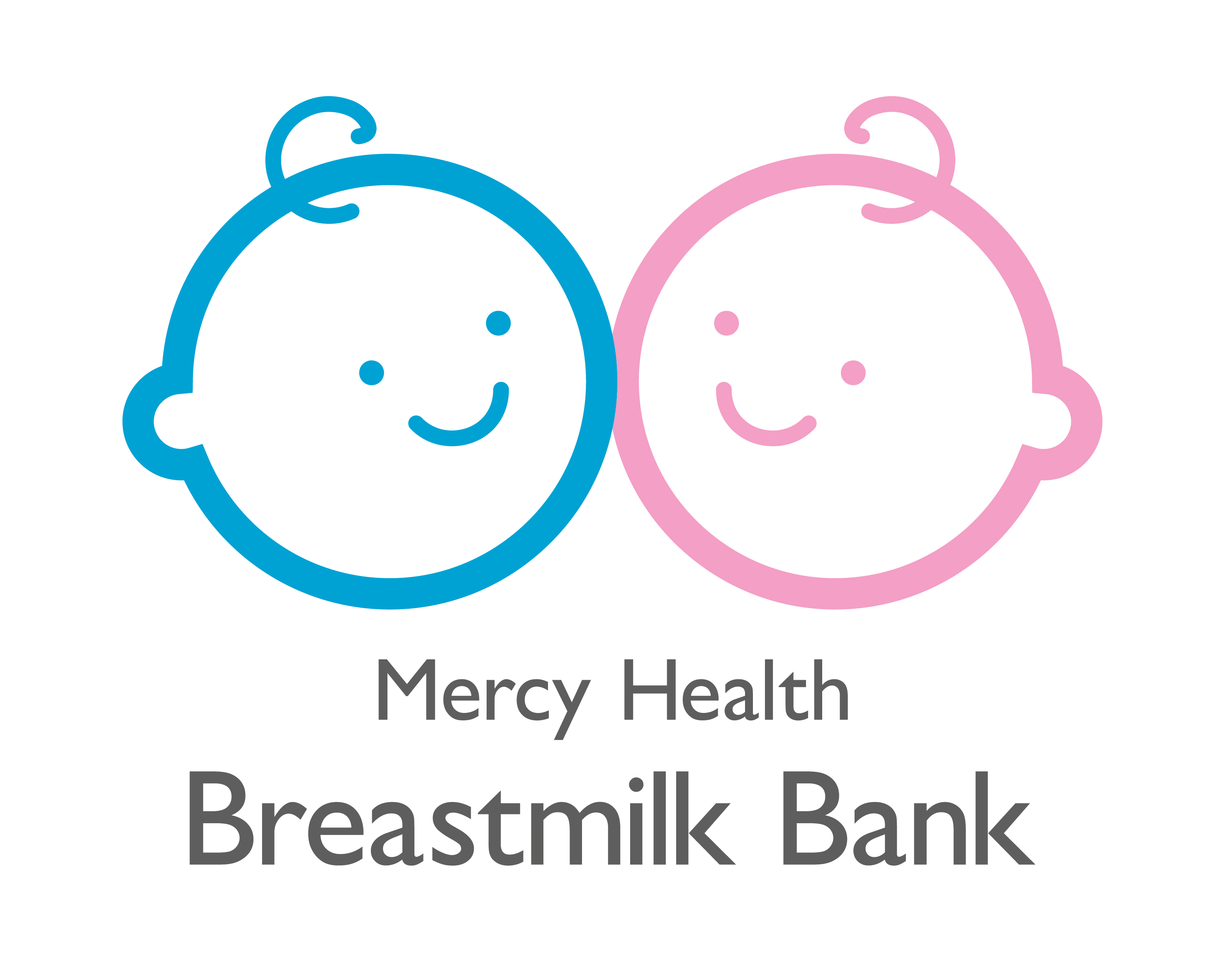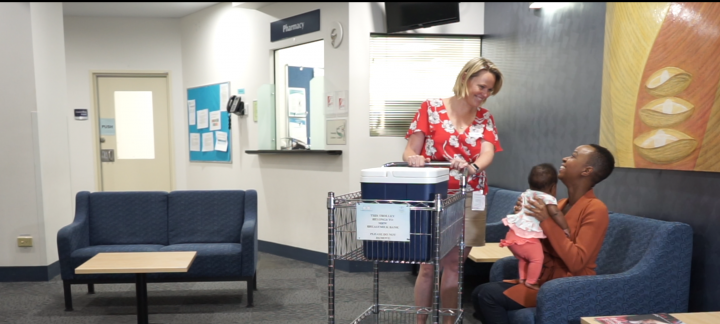What is Pasteurised Donor Milk and who does it help?
Donated breastmilk is called Pasteurised Donor Milk (PDM) once it has undergone the pasteurising process in our milk bank. A sample of donated breastmilk and Pasteurised Donor Milk is taken for microbiology testing to ensure it meets our strict standards and is safe to feed to our vulnerable babies.
A mother’s own breastmilk is the best possible nutrition for premature and/or sick babies. Some mothers find it difficult to produce enough breastmilk for many reasons, including being unwell and her baby being born too early to feed from her breast.
Providing safe breastmilk to this vulnerable population is our priority.
Can you donate?
To be eligible to donate breastmilk, mothers must have had their baby at the Mercy Hospital for Women, Monash Medical Centre – Clayton or The Royal Women’s Hospital or have their baby in the Special Care Nursery or Neonatal Intensive Care Unit at the Mercy Hospital for Women, Monash Children’s Hospital, The Royal Women’s Hospital or The Royal Children’s Hospital.
Potential donors must have an abundance of breastmilk and be exclusively breastfeeding their baby who is less than six months old.
All prospective donors must complete a detailed health and lifestyle screening questionnaire and undertake specific blood testing. During a confidential interview, a lifestyle screening process will take place and a further appointment will be made for you to undertake blood tests.
It is important that a breastmilk donor:
- does not have a chronic or acute medical condition requiring certain medications [excluding Ventolin, Insulin and Thyroxine]
- does not have a family history of tuberculosis (TB)
- did not receive growth hormone prior to 1986
- did not spend a total of six months or more in the United Kingdom between 1980 and 1996 – a precautionary measure against vCJD (variant Creutzfeldt-Jakob disease – a human form of bovine spongiform encephalopathy (BSE) or “mad cow disease”)
- does not have a recent history of live vaccination
- tests negative for human immunodeficiency virus (HIV) 1 and 2, Hepatitis B and C, human T-cell leukemia-lymphoma virus (HTLV) I and II, and Syphilis
- does not have a history of cancer
- did not receive a blood transfusion in the previous 12 months
- does not have a history of fertility treatment using donor sperm or eggs
- did not get a tattoo (including cosmetic tattooing), body and/or ear piercing, electrolysis or acupuncture (including dry-needling) in previous 4 months
The Mercy Health Breastmilk Bank cannot accept donations from mothers who:
- consistently consume more than two standard alcoholic drinks per week
- consistently consume more than three cups of coffee, tea or other caffeine drinks per day (including cola and stimulant soft drinks)
- use illegal drugs or other prohibited substances
- smoke
Breastmilk donors are not paid for their donations.
The Mercy Health Breastmilk Bank will support donors with appropriate advice and the necessary equipment in return for their generous gift.
Once you have qualified as a donor, Mercy Health Breastmilk Bank staff will provide specific instructions about expressing, storing and hygienically transporting your breastmilk to the Mercy Hospital for Women.
What is involved in becoming a breastmilk donor
Donors are required to attend the Mercy Hospital for Women in Heidelberg for a Donor Screening Interview to establish eligibility. This interview takes approximately one hour. Parking will be provided.
Following the screening interview, a blood test is arranged. This takes approximately 15 minutes in the outpatient clinic. This can be taken on the same day as the screening interview.
The Mercy Health Breastmilk Bank can only accept breastmilk donations following notification of acceptable blood results.
Donors arrange to drop off donor breastmilk at a time convenient to themselves and their family, Monday to Friday, 8am–4pm, at a designated drop-off site. A staff member of the Mercy Health Breastmilk Bank or satellite site will meet the donor at the hospital entrance to collect the milk. At this time additional supplies are provided, if required. This takes approximately 5–10 minutes.
Express your interest in becoming a breastmilk donor
Mercy Health Breastmilk Bank

-
Phone numbers:
Mercy Health Breastmilk Bank
03 8458 4477
We are available Monday to Friday, 8am–4pm.
- Email address: [email protected]
- Website: Mercy Health Breastmilk Bank
-
About:
Please contact us if you are interested in becoming a breastmilk donor.
If we are unable to answer the phone, please leave a voicemail with your contact details, or send us an email and we will respond within 24 hours.
Research
Breastmilk donors have the option of allowing their donated breastmilk to be used for research purposes. Access to your donated breastmilk is limited to the Mercy Health Breastmilk Bank staff and all research will be subject to Mercy Health Human Research Ethics Committee approval.



